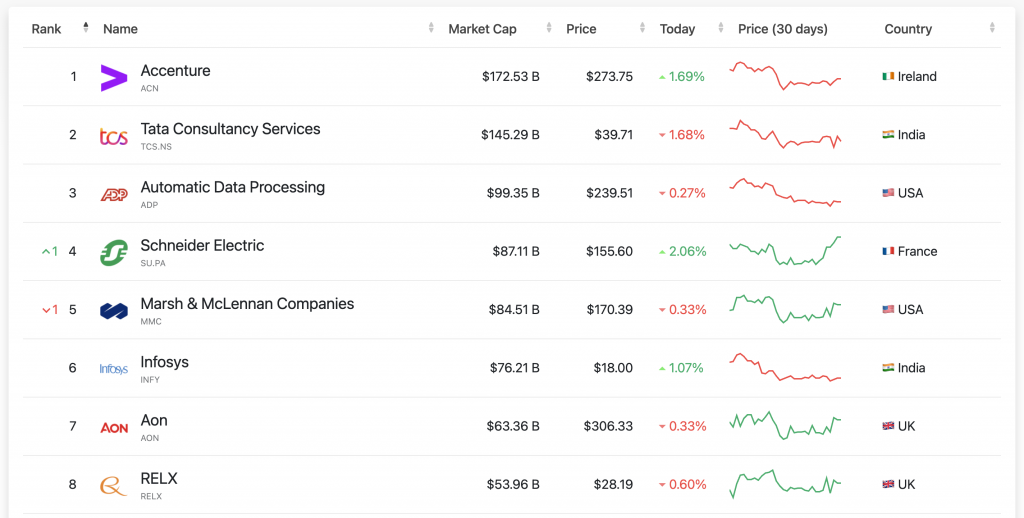It’s definitely true that having a strong professional network can be incredibly valuable. Building and maintaining relationships with people in your industry can open up opportunities for career advancement, provide support and mentorship, and help you stay informed about the latest developments and trends in your field.
One of the key benefits of a professional network is the ability to tap into the knowledge and experience of others. Whether you’re looking for advice on a specific problem or just want to get a better understanding of the industry as a whole, having people you can turn to for guidance can be incredibly helpful.
Having a good professional network can also increase your visibility and credibility. Being connected to a network of people who are respected in your field can help boost your reputation and make you a more attractive candidate for job opportunities or new projects.
It’s important to note that building a strong professional network takes time and effort. It’s not something that can be done overnight, and requires persistence, consistency and communication. Networking events, online communities, and professional organizations are all great ways to connect with other people in your industry.
Reaching out and following up with people you meet is also important to make the most out of these interactions and developing a real relationship.
Overall, having a good professional network can provide many benefits and help you to achieve your career goals.
5 reasons that non-executives should build relationships with professional services firms
- Expertise: Professional services firms, such as management consulting firms, accounting firms, and law firms, bring a wealth of expertise to the table. They can provide non-executive directors with specialized knowledge and insights that can help them make more informed decisions.
- Resources: Professional services firms often have access to a wide range of resources, such as databases and industry reports, that can help non-executive directors stay informed about the latest trends and developments in their field.
- Networking opportunities: Being associated with a professional services firm can provide non-executive directors with access to a large network of contacts. This can be especially valuable for non-executive directors who are new to a specific industry or sector.
- Support during times of crisis: Professional services firms can be especially useful during times of crisis, such as when a company is facing financial difficulties or a scandal. They can provide non-executive directors with the guidance and support they need to navigate the situation.
- Accountability: Professional services firms are often accountable to regulatory bodies and adhere to strict codes of conduct, which means non-executive directors can rely on them to act with integrity and independence when providing their services. This added layer of accountability can be especially important in sensitive matters such as governance, M&A, legal and financials review.

Peer-2-Peer networking for non-executive directors
Peer-to-peer networking, which is networking between individuals who work in similar roles or industries, can be an effective way to supplement the benefits provided by professional services firms. Some ways that peer-to-peer networking can help non-executive directors include:
- Sharing of practical experience and advice: Non-executive directors can learn from their peers about the practical challenges and opportunities they have encountered in their roles. This can provide valuable insights that can help other and aspiring non-executive directors make better decisions.
- Building a personal network of contacts: Non-executive directors can build a personal network of contacts that they can turn to for advice and support, and that can also help them stay informed about the latest developments in their field.
- Learning about new trends and developments: Non-executive directors can stay informed about new trends and developments in their field by connecting with peers who are working on the cutting edge of their industry.
- Creating opportunities for collaboration: Peer-to-peer networking can create opportunities for collaboration, such as working together on a project or jointly pursuing a business opportunity.
- Support and mentorship: Non-executive directors can benefit from the support and mentorship of their peers, who can provide guidance and advice as they navigate their roles. Additionally, experienced non-execs can also benefit from sharing their knowledge and experience with less experienced non-execs, who will be future leaders in the field.
- Building a community: Peer-to-peer networking can help non-executive directors build a sense of community with others in their field, which can provide a support mechanism and can also be motivating.
Overall, professional services firms can provide non-executive directors with specialized expertise, resources, and support, while peer-to-peer networking can provide them with practical advice, a personal network of contacts, opportunities for collaboration, and support and mentorship. Both of them together can provide a holistic approach that can help non-execs make well-informed decisions.
If you are looking to start or expand your non-executive director career, join us today – CLICK HERE

